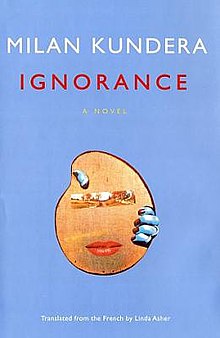
The Prague Spring was a period of political liberalization and mass protest in the Czechoslovak Socialist Republic. It began on 5 January 1968, when reformist Alexander Dubček was elected First Secretary of the Communist Party of Czechoslovakia (KSČ), and continued until 21 August 1968, when the Soviet Union and most Warsaw Pact members invaded the country to suppress the reforms.
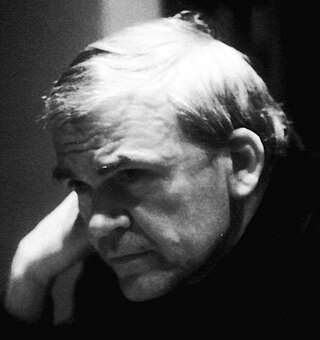
Milan Kundera was a Czech and French novelist. Kundera went into exile in France in 1975, acquiring citizenship in 1981. His Czechoslovak citizenship was revoked in 1979, but he was granted Czech citizenship in 2019.

Czech literature can refer to literature written in Czech, in the Czech Republic, or by Czech people.
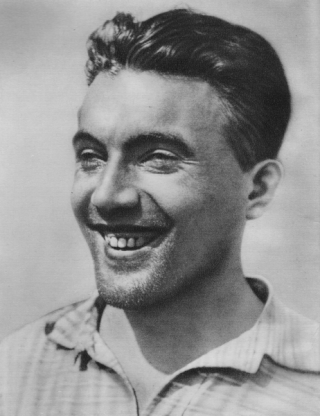
Julius Fučík was a Czech journalist, critic, writer, and active member of Communist Party of Czechoslovakia. For his part at the forefront of the anti-Nazi resistance during the Second World War, he was imprisoned and tortured by the Gestapo in Prague, and executed in Berlin. While in prison, Fučík recorded his interrogation experiences on small pieces of paper, which were smuggled out and published after the war as Notes from the Gallows. The book established Fučík as a symbol of resistance to oppression, as well as an icon of communist propaganda.
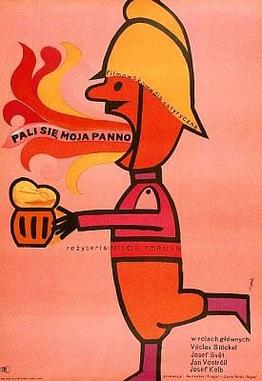
The Czechoslovak New Wave is a term used for the Czechoslovak filmmakers who started making films in the 1960s. The directors commonly included are Miloš Forman, Věra Chytilová, Ivan Passer, Pavel Juráček, Jiří Menzel, Jan Němec, Jaromil Jireš, Evald Schorm, Hynek Bočan, Juraj Herz, Juraj Jakubisko, Štefan Uher and others. The movement was sometimes called the "Czechoslovak film miracle".

Agnieszka Holland is a Polish film and television director and screenwriter, best known for her political contributions to Polish cinema. She began her career as an assistant to directors Krzysztof Zanussi and Andrzej Wajda, and emigrated to France shortly before the 1981 imposition of the martial law in Poland.

Michal Viewegh is one of the most popular contemporary Czech writers.

The Unbearable Lightness of Being is a 1984 novel by Milan Kundera, about two women, two men, a dog, and their lives in the 1968 Prague Spring period of Czechoslovak history. Although written in 1982, the novel was not published until two years later, in a French translation. The same year, it was translated to English from Czech by Michael Henry Heim and excerpts of it were published in The New Yorker. The original Czech text was published the following year.
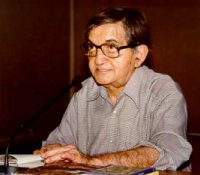
Nirmal Verma was a Hindi writer, novelist, activist and translator. He is credited as being one of the pioneers of the Nai Kahani literary movement of Hindi literature, wherein his first collection of stories, Parinde (Birds) is considered its first signature.

The Book of Laughter and Forgetting is a novel by Milan Kundera, published in France in 1979. It is composed of seven separate narratives united by some common themes. The book considers the nature of forgetting as it occurs in history, politics, and life in general. The stories also contain elements found in the genre of magic realism.

The Joke is Milan Kundera's first novel, originally published in 1967. It describes how a student's private joke derails his life, and the entwined stories of his lovers and friends grappling with the shifting roles of folk traditions and religion under Communist Czechoslovakia.

Identity is a novel by Franco-Czech writer Milan Kundera, published in 1998. Kundera moved to France in 1975. Identity is set primarily in France and was his second novel to be written in French with his earlier novels all in Czech. The novel revolves around the intimate relationship between Chantal and her marginally younger partner Jean-Marc. The intricacies of their relationship and its influences on their sense of identity brings out Kundera's philosophical musings on identity not as an autonomous entity but something integral shaped by the identities of others and their relations to your own.

The South is a 1990 novel by Irish writer Colm Tóibín.

Slowness is a novel by Czech writer Milan Kundera published in 1995 in France, where the author had been living since the 1970s. It's his first fictional work written in French. In the book, Kundera weaves together a number of plot lines, characters and themes in just over 150 pages. While the book has a narrative, it mainly serves as a way for Kundera to expound his philosophical ideas about modernity, technology, memory and sensuality.

The Unbearable Lightness of Being is a 1988 American romantic drama film, an adaptation of the 1984 novel by Milan Kundera. It was directed by Philip Kaufman, who co-wrote the screenplay with Jean-Claude Carrière, and stars Daniel Day-Lewis, Juliette Binoche and Lena Olin. The film portrays Czechoslovak artistic and intellectual life during the Prague Spring, and the effect on the main characters of the communist repression that resulted from the Warsaw Pact invasion of Czechoslovakia in 1968.
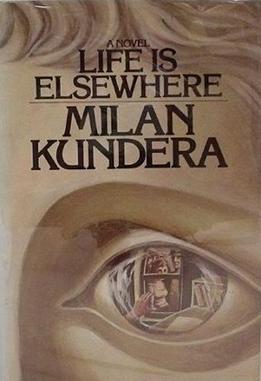
Life Is Elsewhere is a Czech-language novel by Milan Kundera finished in 1969. It was first published in French in 1973. Set in Czechoslovakia before, during, and after the Second World War, it tells the story of a young poet Jaromil and his mother who cling to each other as Jaromil tries to find artistic fame and advance the revolution at the expense of his most intimate relationships.

The Farewell Waltz is a Czech-language novel by Milan Kundera published in 1972. A French edition was published in 1976 and an English version entitled The Farewell Party.
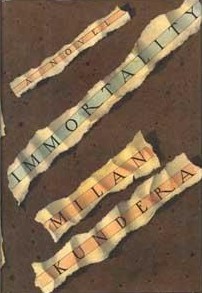
Immortality is a novel in seven parts, written by Milan Kundera in 1988 in Czech. It was first published in 1990 in French, and then translated into English by Peter Kussi and published in the UK in 1991. The story springs from a casual gesture of a woman, seemingly to her swimming instructor. Immortality is the last of a trilogy that includes The Book of Laughter and Forgetting and The Unbearable Lightness of Being.

Irena "Inka" Bernášková was a Czechoslovak journalist and resistance member who was active in the fight against the German occupation during World War II. She was the first Czech woman sentenced to death by the People's Court in Berlin.

Irena Dousková is a contemporary Czech author, who writes primarily novels, but also short stories and poetry.
